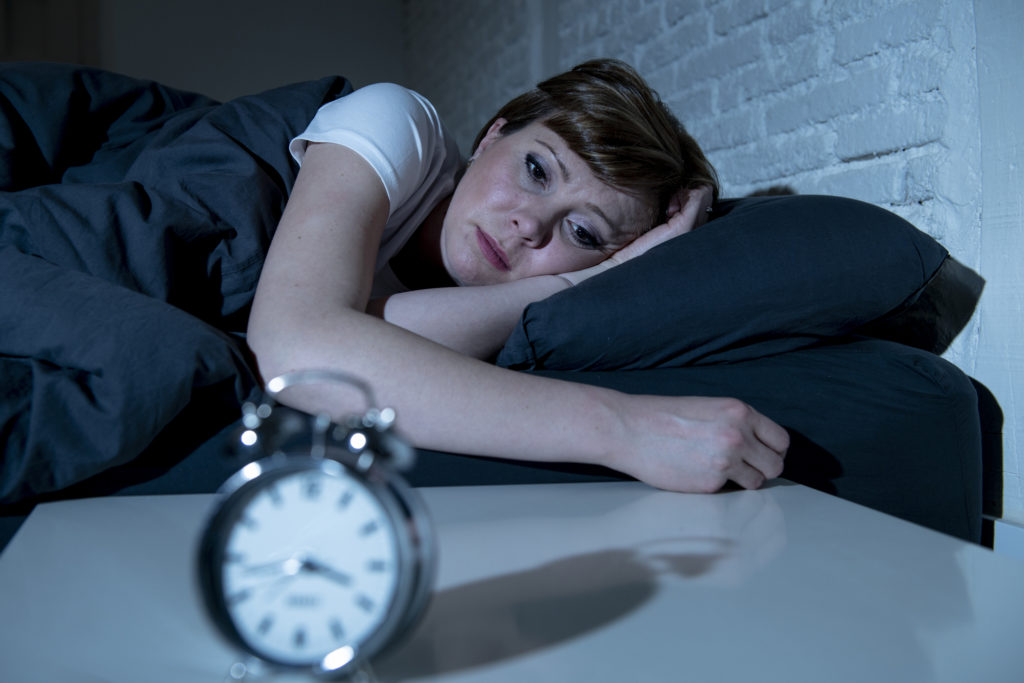Examining the Common Reasons for Restless Sleep

As many of Dr. Lawrence’s patients can attest, getting enough sleep at night is a precious thing. Having your sleep interrupted by constant tossing and turning, frequent trips to the bathroom, or a sleep partner’s snoring can significantly impact our ability to stay focused, feel rested, and function highly the next day. While a sleep apnea test can help to determine if your restless nights are the result of a sleep disorder, there are still many other reasons why you’re not getting the rest you need.
Let’s take a look at some of the most common reasons patients cite as preventing them from receiving the deep sleep they require to feel their best.
Frequent Bathroom Trips
Having a blissful dream interrupted by a need to use the bathroom in the middle of the night can greatly interfere with your ability to fall back asleep. Getting out of bed, turning on the bathroom light, and washing your hands can stimulate the body in ways that make it hard to relax once you climb back into bed.
If you frequently get up to use the bathroom, you may be drinking too much in the evening, especially right before bed. Try not drinking anything at least an hour before bedtime to limit fluid intake. If the problem continues to persist, those late night urges could be a sign of a more serious medical issue, such as a bladder infection or as a side effect of a particular medication you’re taking.
Using Alcohol as a Sedative
After a long day at work or school, relaxing with a drink can help to relieve some built up stress. While using alcohol in moderation is fine, relying on the alcohol to help you fall asleep at night can cause the opposite to occur.
Once the initial intoxicating effects of alcohol wear off, alcohol has a stimulating effect on the body. Even though those glasses of wine may have helped put you to sleep, they may also contribute to you waking up late at night and make it harder for you to fall back asleep.
Heartburn Keeps You Up
Patients who experience frequent indigestion find heartburn a common issue they must deal with at night. That’s because laying down makes it easier for stomach juices to move back up the esophagus.
To decrease the likelihood of experiencing heartburn at night, try the following tips:
- Eat dinner at least 3 to 4 hours before heading off to bed. Additionally, try eating a light meal for dinner, as a full stomach make indigestion more likely.
- Avoid eating foods that cause heartburn, such as fatty and spicy foods.
- Place a pillow under your upper body to help keep acid down.
- Try the use of an over-the-counter antacid.
Drinking Too Much Caffeine
A cup of coffee in the morning can often provide the jolt we need to start the day. However, when we drink caffeine later in the day, that same type of jolt may lead to some restless nights.
Even though the initial stimulation may have worn off, caffeine can still circulate through our systems for hours after we finish drinking. If you have a hard time unwinding when lying down to sleep, drinking caffeine late in the day could be a contributing factor. Try not to drinking anything with caffeine within 8 hours of bedtime. That’s not just coffee and tea you should avoid, but any caffeinated sodas and alcohol made with coffee.
Stressing Out
Roughly 43 percent of adults in the U.S. report that stress causes them to lie awake at night. To help reduce the tension, try to exercise or meditate during the day. In the evening take some time to unwind from the day before heading off to bed. Trying to sleep immediately after a long shift or hard day’s work will often leaving you tossing and turning, so use that time to read, watch TV, or just do some breathing exercises.
Disruptive Bedroom Activity
Your bedroom needs to act like a sanctum where nothing can distract you from sleep. If you have a TV in your bedroom or spend time on your tablet or laptop while in bed, you’re not creating a relaxing environment, but one where the brain expects to receive stimulation.
TV’s and computer screens also produce a type of blue light that studies have shown cause mental stimulation, thereby making it more difficult to fall asleep even when the lights are turned off.
If you have trouble sleeping at night, remove all of the electronics from your bedroom and see if that doesn’t make a difference.
Getting a good night’s sleep can make all the difference in the world. If you don’t feel like a sleep apnea test is right for you, but you still have trouble sleeping, hopefully the tips provided above will help you get the rest you deserve. If you do feel like you need a sleep apnea test, contact our office today for your sleep apnea consultation with Dr. Lawrence.

